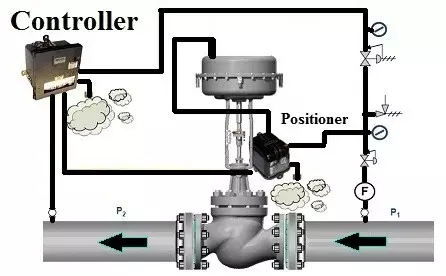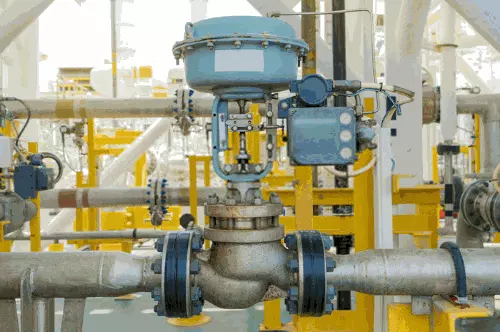Control valves are crucial parts of industrial processes because they control the fluids' level, pressure, and flow. For the system to operate as efficiently, safely, and optimally, the control valve selection is essential. The variables that need to be taken into account when selecting a control valve will be covered in this article. These factors include process parameters, control requirements, material selection, valve performance, maintenance, and reliability.
Understanding Control Valves
It's critical to comprehend how control valves work fundamentally before diving into the variables influencing control valve selection. The actuator, positioner, and valve body make up a control valve. By modifying the location of a plug, ball, or disc to modulate the flow passage, the valve body regulates the flow rate. The positioner assures precise control by using feedback signals, and the actuator supplies the force required to move the valve mechanism.

Considerations for Choosing a Control Valve
1: What is flowing through the pipeline?
The control valves that are selected for your unit should be determined by the properties of the material that is passing through the pipeline. Does the substance passing through the pipes have a strong corrosive quality? You must choose the control valve carefully if it must handle this flow. Given their ability to withstand such severe circumstances, the PTFE or PFA control valves may be suitable options. The requirements for your control valve may vary depending on how pressurized gas flows through the pipelines. It would be appropriate to use metal control valves to transport gas through channels.
2: For what purpose will the control valve be used primarily?
The control valve is necessary for your industrial unit; why? Consideration for a control valve's versatility is the second important factor to take into account. A control valve may be necessary for the following reasons.
1) It might be necessary to stop the flow.
2) A valve with the ability to change the flow might be necessary.
3) It's possible that your unit needs a valve that can perform pressure relief operations.
4) A control valve may also be necessary for backflow prevention.
5) Does the pipeline's flow need to be adjusted? Here's another justification for the necessity of a control valve.
These tasks can be completed by a control valve, so you have to choose one based on your requirements. Ball valves are one example that you can use. They are not suitable for modifying the flow, but they can withstand jamming and clogging. When choosing a control valve, these factors need to be taken into account.
3: What is the valve's performance capacity?
Given that you are sourcing the product from the top control valve suppliers in India, this is an additional consideration. What is the expected performance of the valve in terms of temperature and pressure? You will require this information prior to making a purchase. If the temperature at which you operate is higher, metal valves are suitable. These control valves are also ideal for pipeline transportation of pressurized gases. Metals are resistant to extreme weather because of their inherent strength. Consider using plastic control valves if the requirements are not too strict.
4: Why is size important to consider?
It would be beneficial if you chose the control valves for your unit with size in mind. Your staff may experience operational issues as a result of an incorrectly sized valve. A small control valve will cause problems immediately because it will simply block the pipeline's ability to carry liquid or gas. Choosing oversized valves may also lead to issues. A small variation in the valve's position can result in a big variation in the flow. Oversized valves may cause friction issues that need to be addressed. Thus, when purchasing them for your industrial unit, the size of the valve is the fourth important consideration to make.
5: What is the actuation method's main focus?
This brings us to our fifth consideration: the industrial unit's control valve selection. How will one operate the valve? It shouldn't be a problem if the valve is operated manually; however, if actuation is required, you will need to make your choice after closely observing. For the latter, your unit needs an actuator that is either electric, pneumatic, or hydraulic.
6: What material is suitable for a control valve?
It is imperative that the materials of the valve and the fluid it controls are compatible in order to avoid corrosion, erosion, or contamination. Materials like bronze, stainless steel, or unique alloys might be needed, depending on the makeup of the fluid.Environmental factors including temperature, humidity, and exposure to corrosives or chemicals should be taken into account. It might be necessary to add more protective materials or coatings to valves installed in harsh environments.
7: How the control valve performs?
The effectiveness and safety of a system can be significantly impacted by valve leaks. Choosing low-leakage valves—such as those that meet international standards like ANSI/FCI 70-2—minimizes product loss and guarantees dependable operation.
A control valve's rangeability is its capacity to offer precise control over a broad range of flow rates. High-rangeability valves can effectively handle a variety of process conditions and provide better control resolution.
The system's capacity to react to variations in control signals is influenced by the response time of a control valve. In processes that don't require quick adjustments, slower reaction times might be acceptable, but fast-acting valves are preferred for those situations.
8: What is the maintenance and reliability of the control valve?
When choosing a control valve, take accessibility and ease of maintenance into account. Valves that have easily removable trim, simple disassembly, and easily accessible replacement parts can drastically lower maintenance expenses and downtime. Ascertain the availability of spare parts for the chosen control valve. Reputable manufacturers' valves frequently have better spare part availability, which enables quicker repairs and replacements when necessary.
Conclusion
There are a number of factors to carefully consider when selecting the correct control valve. Choosing a valve that will provide the best performance, accuracy, and longevity depends on a number of factors, including process parameters, control requirements, material selection, valve performance, and maintenance and reliability considerations. Engineers and operators can improve process control and efficiency by making well-informed decisions by knowing these factors and how they interact.

